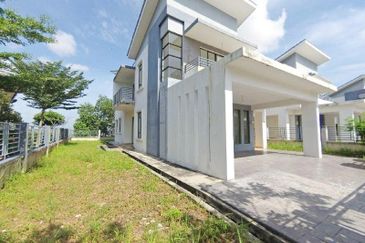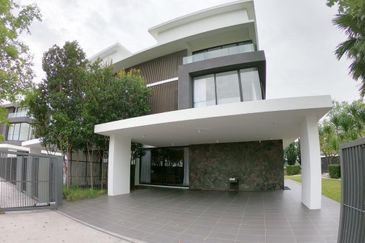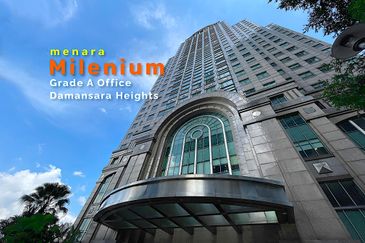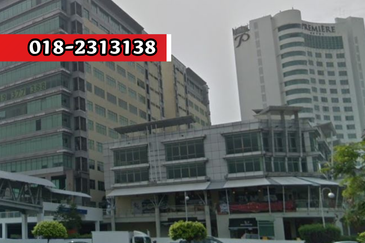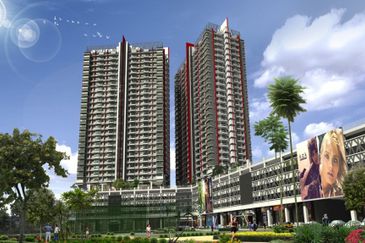Property developers, investors and homeowners are growing increasingly concerned about the government’s frequent and strident statements on excessive froth in the property market. Does this mean that everyone else can rest easy?
Unfortunately not. Because property is an important pillar of Hong Kong’s economy, no family or business is immune from the impact of a substantial property price drop. But there is a case to be made that, if it happened, it could be for the better.
Here’s why. To start with, a fall in property prices means a significant easing of the costs of running small and medium-sized businesses, a lower cost of living for households and fewer so-called systemic risks for the banking system. Most important, it could mean less inflation all round and a more balanced economy.
Two studies this year and a couple of key numbers tell us much about this. Hong Kong is the world’s 14th most expensive city to live in, according to the Economist Intelligence Unit, and the most expensive in which to locate a business, according to real estate adviser Savills. Residential prices are more than double what they were in December 2008 and 18% higher than their peak at the onset of the Asian financial crisis in October 1997.
Moreover, rent accounts for the bulk of costs for most local businesses (easily half or more in popular districts such as Causeway Bay) and one-third of the average household budget. Should economic growth stumble in response to either a faltering US or China (even worse, both), then lower rents would be very welcome.
The negative side to a property price drop would be the drag it places on economic growth. Hong Kong’s property sector accounts for 18% of GDP and 7% of jobs, although we estimate it has contributed up to 40% of economic momentum since 2008.
Moreover, because listed property and construction companies have a disproportionate influence on the Hang Seng Index, property price changes usually sway equity market performance too. This means that ups and downs on the stock market can sometimes amplify the so-called wealth effect that property price changes have on people’s spending. Seven out of every 10 Hong Kong households in private flats are homeowners, many of whom probably own equities too. Using data since 2000, we estimate that a residential property price fall of, say, 10% would trim our 2013 and 2014 GDP forecasts to around 3.4% and 4% year-on-year, respectively (from our current forecast of 3.7% and 4.4%). If, however, negative property market sentiment spills over to equity markets and pulls down the Hang Seng Index by a similar 10%, our current GDP forecasts could be depressed further, to 3% this year and 3.5% in 2014.
Historically, Hong Kong’s equity and property price indices tend to move in lockstep; they rarely diverge. However, two unprecedented factors prevailing at present have made it more likely than during previous property downturns that share prices could hold up even as property prices fall.
First, international capital markets are currently awash with an extraordinary and unprecedented amount of global liquidity (essentially, money looking for investment opportunities), most of it concentrated in Asia. This should offer additional support to equities compared with previous property downturns.
Second, the softening of the property market is the result of measures specifically aimed at that sector, with a view to stabilise the wider financial system (what economists call “macro prudential” measures).
In other words, we are not witnessing so-called macro events that can affect both property and equities, such as the Asian financial crisis, the bursting of the tech bubble, the severe acute respiratory syndrome outbreak or the global financial crisis. Since it is constitutionally illegal for capital controls to be introduced in Hong Kong, the government’s only option is to apply macro prudential measures, such as on the property market or on bank lending.
Besides, investors have become more focused on searching for yield via more efficient asset allocations. This means that, in the event of a significant property price fall, we might expect more funds to shift from Hong Kong’s property sector into local equities, with a positive spillover effect into private consumption.
Expect the markets to continue brooding over the possibility of a fall in property prices in the coming weeks and months. But it’s worth remembering that we’ve been here before. At the start of 2012, we heard much the same thing, but prices ended the year 20% higher. Thus, even if prices were to end this year 20% lower, it would only amount to the start of a correction, not a catastrophic collapse, for investors or the economy.
And we could even get a more stable economy out of it in the longer term. — South China Morning Post
Donna Kwok is HSBC’s Greater China economist.
This article first appeared in The Edge Financial Daily, on June 11, 2013.
TOP PICKS BY EDGEPROP

Bandar Baru Sri Petaling
Bandar Baru Sri Petaling, Kuala Lumpur

Luxura Residence @ twentyfive.7
Kota Kemuning, Selangor



